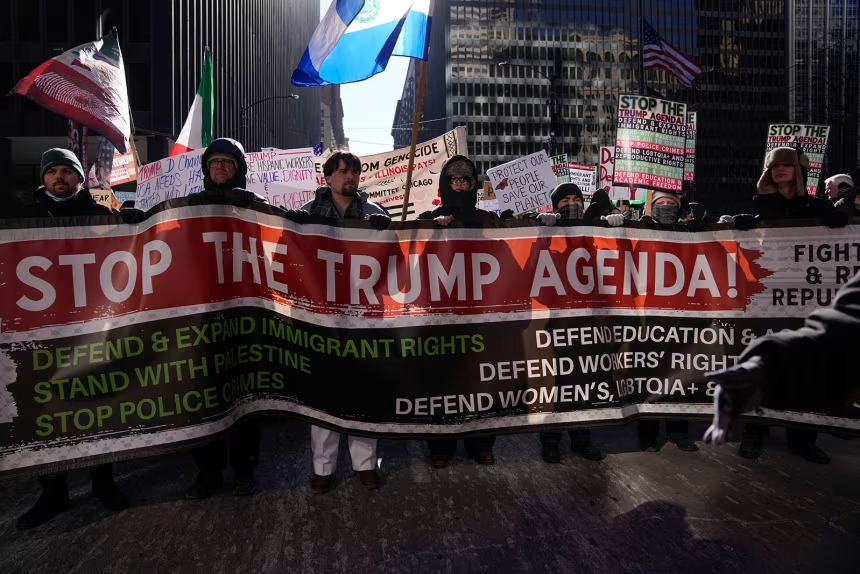
Justice Department Files Lawsuit Against New York City Over Sanctuary City Policies
Politics | 7/25/2025
The Justice Department has filed a lawsuit against New York City challenging the city’s sanctuary city policies. This legal action comes shortly after the Trump administration linked these policies to the recent shooting of an off-duty U.S. Customs and Border Protection officer in Manhattan. The lawsuit, announced on Thursday, underscores the ongoing debate surrounding immigration enforcement and cooperation between federal and local authorities.
Sanctuary city policies, which limit cooperation between local law enforcement and federal immigration authorities, have been a point of contention between the Trump administration and several major cities across the country. The lawsuit against New York City is part of the administration’s broader efforts to address illegal immigration and enhance collaboration between different levels of government in enforcing immigration laws.
In response to the lawsuit, a spokesperson for New York City emphasized the city’s commitment to protecting all residents, regardless of their immigration status. The legal dispute highlights the complex legal landscape surrounding immigration policies and the division of responsibilities between federal and local governments.
Legal experts suggest that the outcome of this lawsuit could have implications beyond New York City, potentially influencing how other jurisdictions approach immigration enforcement. As the case unfolds, it is expected to shed light on the legal boundaries governing sanctuary cities and the extent to which federal authorities can compel local cooperation in immigration matters.
The clash between the Trump administration and sanctuary cities like New York City underscores the ongoing debate over immigration policy and enforcement priorities in the United States. The lawsuit marks a significant development in this contentious issue and sets the stage for a legal battle that may shape the future of immigration enforcement practices across the country.


